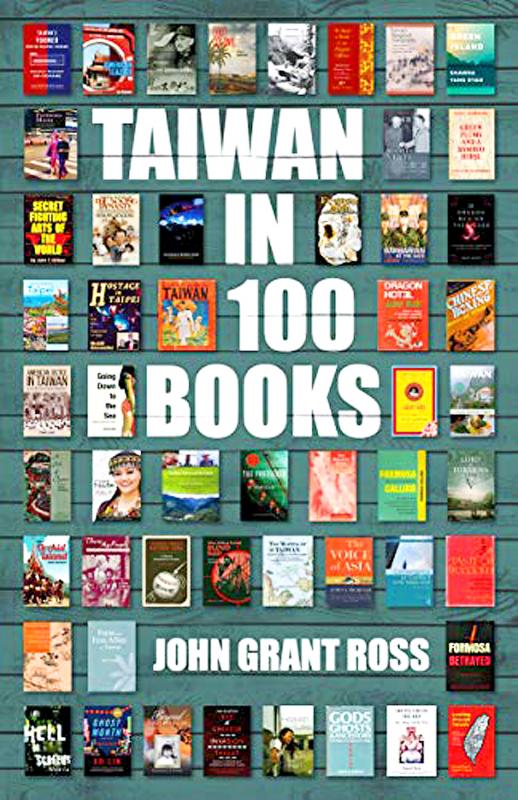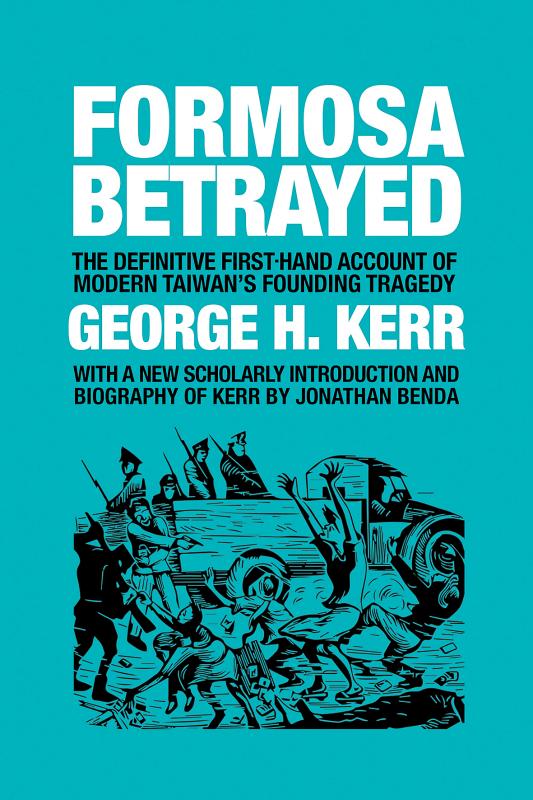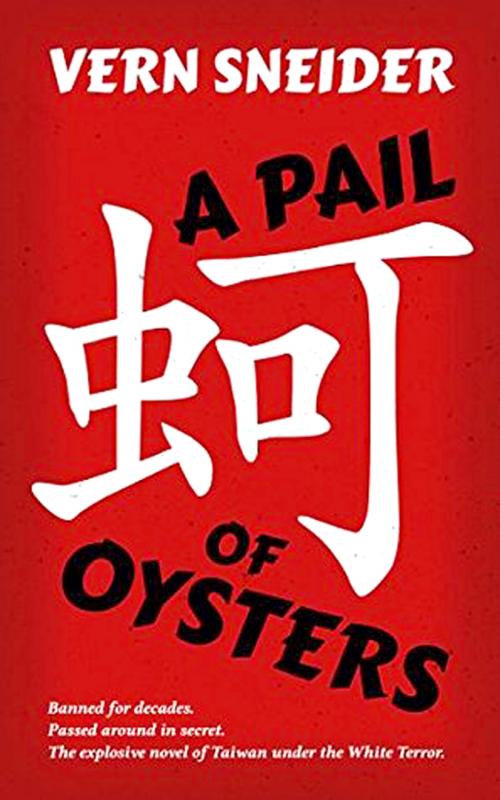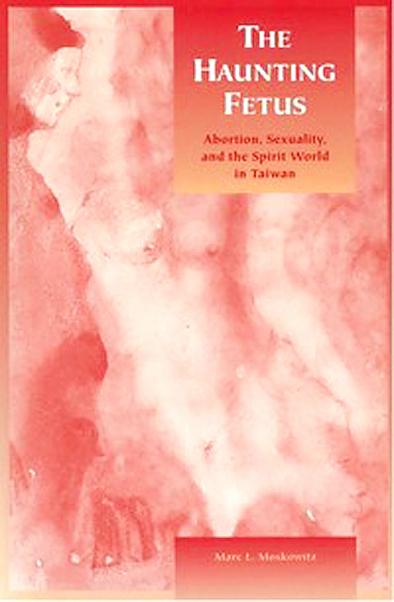There is absolutely no doubt that John Ross’s Taiwan in 100 Books is a magnificent production.
When I first heard of the project I wondered if Ross would really find a hundred Taiwan-related books in English worth writing about. He’s found more, and writes that he was forced to leave some out because he already had enough on the subject (in that case the 228 Incident).
But there is more. There are follow-up volumes proposed on books on Taiwan translated from Chinese and gay Asia in 100 books. Taiwan in 100 Books, in other words, is just the beginning.

Apart from an initial consideration of a book on Asian hand-to-hand fighting which turned out to be a hoax, Ross’s approach is strictly chronological. He begins in the 17th century with another hoax, that of George Psalmanazar, a man who claimed to be from “Formosa” but who had in reality never left Europe. And he ends, somewhat surprisingly, with two very recent travel books about Taiwan that only just manage to merit the generous treatment he gives them.
Ross’s method is to consider his hundred books one by one and pause to fill in their historical background where appropriate, plus the biographies of the authors. This results in making the book read for long stretches like a history of Taiwan. But it isn’t. There would be major omissions if it were. There is, for instance, no mention of the Kaohsiung Incident, the presidency of Chen Shui-bian (陳水扁) and his subsequent prosecution, not to mention the alleged shooting incident the day before his and Annette Lu’s (呂秀蓮) second election.
Shih Ming-te (施明德) and his “red shirts,” plus his 25 years of incarceration, aren’t there either, but then why should they be? If there was no book worthy of hanging the tale on, there would be no excuse for the digression. Instead, we have baseball, railways, ferns, fish, punk music and very much more.

John Ross, one of the triumvirate that runs Camphor Press, is a veritable polymath, and the extent of his knowledge is astonishing. I remember consulting him when reviewing The Jing Affair in 2018 and being amazed by his instant knowledge of the relationship of Pyle in Graham Greene’s The Quiet American (a character based on The Jing Affair’s author) and the original of the daughter of Phuong in Greene’s novel, Danielle Flood, and her memoir The Unquiet Daughter.
Ross had the whole complex story at his fingertips.
Your reviewer is mentioned twice, once in connection with Julie Wu’s Taiwan novel The Third Son (reviewed in the Taipei Times on May 7, 2013), and once with Eric Mader’s A Taipei Mutt (reviewed in the Taipei Times on Dec. 14, 2003).

Ross can’t quite agree with my very high estimate of the former, and as for the latter I don’t quite know what to make of Mader these days after reading his recent posts on Facebook. Actually, I enjoyed his Heretic Days, which isn’t about Taiwan at all, more than A Taipei Mutt. To date, it’s Mader’s masterpiece.
So what are the events that prompt Ross to add to the books he covers?
There are far too many to list them all, but they include Cheng Cheng-kung (鄭成功), better-known as Koxinga, fetus ghosts, Taiwan’s abandoned nuclear weapons program, the forced adoption of unwanted daughters and the Chen Chin-hsing (陳進興) hostage drama of 1997. Ross knows huge amounts about almost everything, and he often adds a fascinating dimension to the original story.

There are many books among those selected by Ross that I remember reviewing. Two that stand out are Scott Ezell’s A Far Corner: Life and Art with the Open Circle Tribe (reviewed in the Taipei Times on April 14, 2015), and Marc L. Moskowitz’s The Haunting Fetus: Abortion, Sexuality and the Spirit World in Taiwan (reviewed in the Taipei Times on Aug. 12, 2011).
Ross considers the Ezell volume to be a Taiwanese classic, and I agree. It’s beautifully written, and covers life in the south-east of the island where people make a living from carving driftwood and Ezell makes a recording in an abandoned farmhouse with views out over the ocean.
As for the fetus ghosts saga, I judged it nine years ago as “the most interesting book on Taiwan I have ever read.” It’s about temples where the spirits of fetuses that have been aborted are, it’s hoped, appeased by their guilt-laden mothers — all in modern Taiwan.
There are, needless to say, many more memorable volumes in Ross’s list, and any that are omitted are probably being held in reserve for a future volume. This applies particularly to some gay-themed books such as Pai hsien-yung’s (白先勇) Crystal Boys (it is mentioned, and could anyway also come under the category of books translated from Chinese at a later date), and Chu Tien-wen’s (朱天文) Notes of a Desolate Man, to which the same categorizations apply.
Ross is invariably generous, sometimes surprisingly so. He has many kind things to say, for instance, about Daniel Reid’s Shots from the Hip: Sex, Drugs and the Tao and The Tao of Health, Sex and Longevity: A Modern Practical Guide to the Ancient Way. And his praise at the end of his book for John Groot’s Taiwanese Feet: My Walk Around Taiwan came as a surprise; I found the book interesting at best.
As for high politics, Ross includes Lin Hsiao-tin’s (林孝庭) Accidental State: Chiang Kai-shek, the United States and the making of Taiwan (2016), which shows that the formation of Taiwan wasn’t at the forefront of anyone’s mind in the early days, as well as George Kerr’s Formosa Betrayed (1965), a “detailed and impassioned account of KMT [Chinese Nationalist Party] misrule.”
High praise, too, goes to Vern Sneider’s A Pail of Oysters (1953), “the first English-language White Terror novel.”
This, then, is a truly wonderful book, whether you use it for identifying volumes you want to read, or getting in a nutshell the gist of other books you won’t be reading but are glad to know about. Its range is enormous and the author’s judgment rarely, if ever, open to question. Camphor Press, Taiwan’s biggest independent English-language publisher, has, in other words, once again come up trumps.

Jacques Poissant’s suffering stopped the day he asked his daughter if it would be “cowardly to ask to be helped to die.” The retired Canadian insurance adviser was 93, and “was wasting away” after a long battle with prostate cancer. “He no longer had any zest for life,” Josee Poissant said. Last year her mother made the same choice at 96 when she realized she would not be getting out of hospital. She died surrounded by her children and their partners listening to the music she loved. “She was at peace. She sang until she went to sleep.” Josee Poissant remembers it as a beautiful

March 2 to March 8 Gunfire rang out along the shore of the frontline island of Lieyu (烈嶼) on a foggy afternoon on March 7, 1987. By the time it was over, about 20 unarmed Vietnamese refugees — men, women, elderly and children — were dead. They were hastily buried, followed by decades of silence. Months later, opposition politicians and journalists tried to uncover what had happened, but conflicting accounts only deepened the confusion. One version suggested that government troops had mistakenly killed their own operatives attempting to return home from Vietnam. The military maintained that the

Before the last section of the round-the-island railway was electrified, one old blue train still chugged back and forth between Pingtung County’s Fangliao (枋寮) and Taitung (台東) stations once a day. It was so slow, was so hot (it had no air conditioning) and covered such a short distance, that the low fare still failed to attract many riders. This relic of the past was finally retired when the South Link Line was fully electrified on Dec. 23, 2020. A wave of nostalgia surrounded the termination of the Ordinary Train service, as these train carriages had been in use for decades

Lori Sepich smoked for years and sometimes skipped taking her blood pressure medicine. But she never thought she’d have a heart attack. The possibility “just wasn’t registering with me,” said the 64-year-old from Memphis, Tennessee, who suffered two of them 13 years apart. She’s far from alone. More than 60 million women in the US live with cardiovascular disease, which includes heart disease as well as stroke, heart failure and atrial fibrillation. And despite the myth that heart attacks mostly strike men, women are vulnerable too. Overall in the US, 1 in 5 women dies of cardiovascular disease each year, 37,000 of them